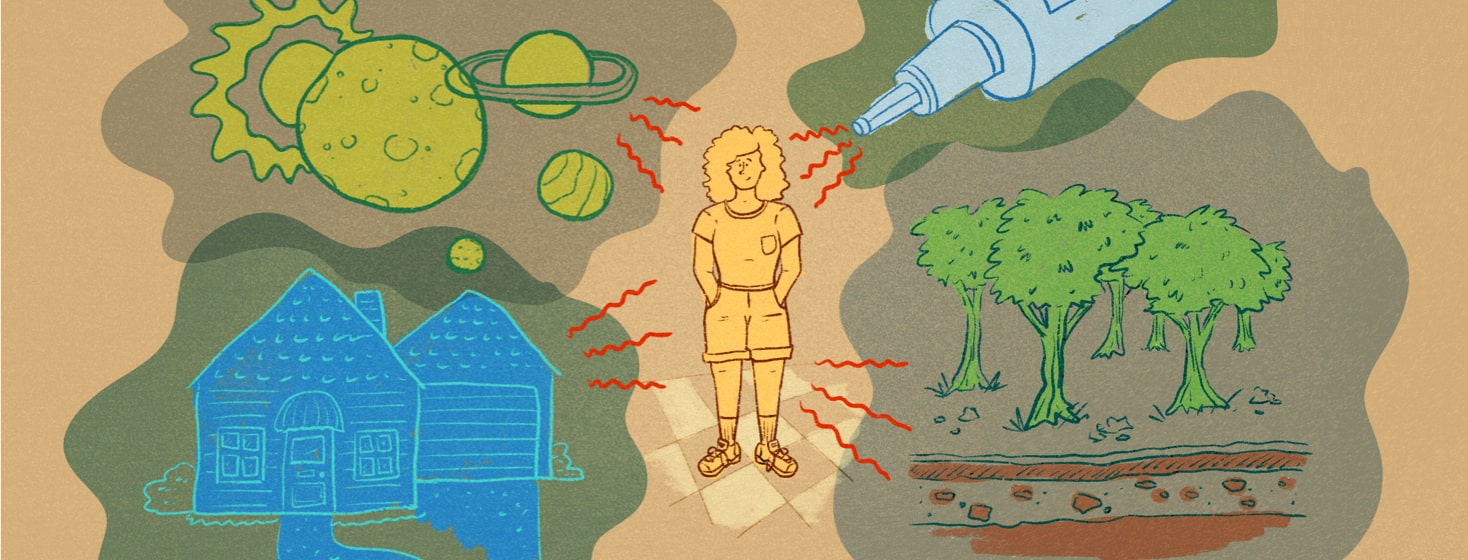Is Radiation Safe?
Radiation therapy is a standard treatment for many forms of cancer and is becoming increasingly popular for skin cancer treatment. Doses of radiation are carefully planned and delivered by professionals, like me, to keep everyone involved safe. When misused, radiation can be hazardous, so it is important to know the basics of radiation safety.
Concerns about background radiation
“Isn’t there radiation all over the place that we get exposed to daily?”
Yes, there is! We radiation nerds call that "background radiation." According to the United States Environmental Protection Agency (EPA), the average American will receive about 6.2 mSv of radiation exposure a year from natural and human-produced radiation.1
Even if you build a radiation-proof bunker, you can’t do much to avoid natural exposure, as it comes from things like food, outer space, radon gas, and the earth. You can limit your exposure to medical radiation, but there is usually a good reason for it if your healthcare providers are using radiation. Medical radiation doses are low, especially in comparison to the amounts observed in the Chernobyl accident (which seems to be what many people think of when they hear "radiation").2
Procedures to keep radiation exposure low
In the world of radiation, we like to use the term “ALARA,” which means "as low as reasonably achievable." We want to make every effort to keep doses of radiation exposure as low as possible by minimizing the time of exposure, maximizing the distance from the radiation source, and using shielding to protect from radiation.
- Lead shielding is commonly used while treating skin cancers with radiation. A lead shield is used to protect the area around the treatment area from any exposure. My shielding is planned around the treatment area designated by the dermatologist. I cut the desired shape out and use that for confining the radiation to just the treatment field.
- Lead aprons are another common practice. Their purpose is to protect the large majority of a person’s active bone marrow. When treating skin cancers, my patients will have a large lead apron draped over them, and they will also wear a lead thyroid cover and lead safety glasses. Radiation safety makes quite the fashion statement!
Additional safety measures
I leave the room during radiation treatments, as career-long exposure to radiation is not ideal. My absence from the room does not jeopardize the patient’s safety during treatment, especially with an audio-visual communication system and an interlock system on the door. If I have a patient in distress, I can see it on my video monitor from my treatment console, and as I immediately open the door to help them, the door interlock will stop the radiation beam. Daily checks are done to ensure this system is functioning correctly. That’s quality assurance for everyone!
Signs are also posted to notify people that there is radiation present and that it is not a safe area for someone who is pregnant or may be pregnant. Other living creatures, including your partner, your child, or even your pet, are not allowed to be in the room with you while the treatment is being delivered. Radiation protection is for everyone. Any aides or emotional support beings must leave the room with me and return once the treatment is complete. With superficial radiation therapy, once the beam is off, there is no radiation floating around or emitted from the patient. Beam off = safe!
These are the basics of radiation safety. Hopefully, you never need this information, but at least you are prepared now!

Join the conversation